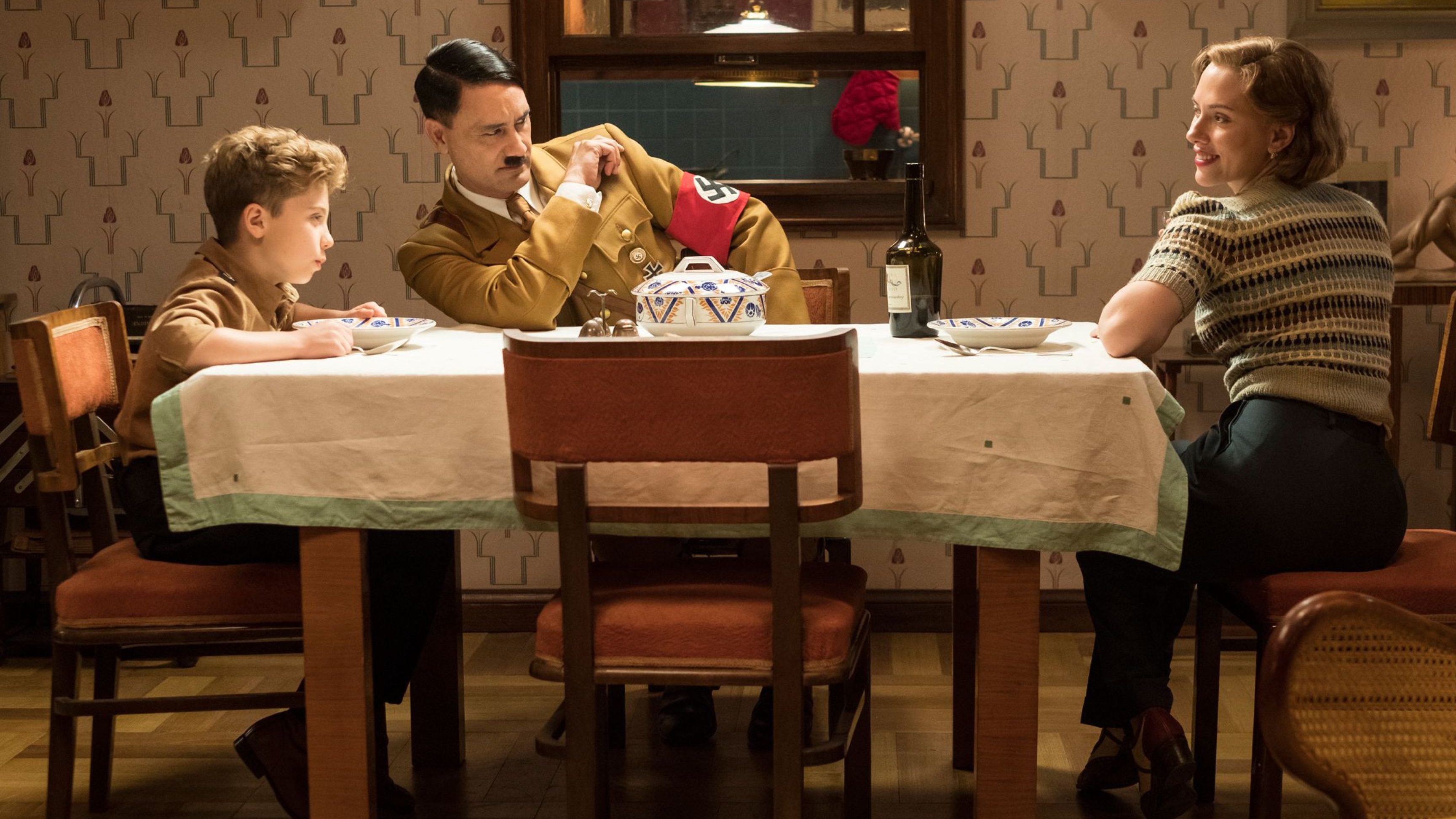4.5/5 stars
Most people would agree that Nazism is not an appropriate subject for humour so, in Jojo Rabbit, director Taika Waititi shows a noticeable level of audacity in telling this story with a comic voice.
Johannes aka Jojo (Roman Griffin Davis) is a ten-year-old boy with blond hair and blue eyes who wants nothing more than to be friends with the Führer (played by Waititi himself).
Jojo acclaims to be a proud Nazi and he is so excited to voluntarily apply for the Hitler Youth training camp with his friend Yorki.
However, he considers Yorki his “second-best friend”, the first one is, of course, Hitler, who he often sees by his side as an imaginary guide.
The first part of the film represents Jojo’s innocence; from when he refuses to kill a rabbit – he would get the nickname from there, to when he makes explode a grenade at his feet, leaving him with a facial scar.
The turning point is when he discovers that his mum (Scarlett Johansson) is hiding a Jewish girl (Thomasin McKenzie) in his closet.
This is the moment where Jojo’s perceptions about the war and Jewish people change. His initial support of Hitler’s abhorrent plans are replaced with understanding of Jewish culture and the personal connections he makes.
Scarlett Johansson is the real star of this film. She always leaves a positive allure around her and especially about her influence to Jojo. She plays the most charming and complex character. To protect her boy, she plays ball with the Nazis and indulges Jojo’s naive dream of attending a Hitler camp despite her personal revolutionary beliefs.
The whole film is projected through Jojo’s naive eyes on how he sees the world around himself. He is so proud to wear a uniform and to be part of a group, but that is all for all these little boys who attended the training camps.
Yorki himself says, towards the end of the film, when the situation gets tenser for the Germans: “This is not a good time to be a Nazi. I am going to see my mum. I need a cuddle.”
I believe that Waititi intentions were not to humanise Hitler’s character, who rather appears awkward and silly, but to show the audience another face of Nazism, the naive and fragile faces of millions of boys indoctrinated in Nazi ideology.
We are all used to learn from this period through sad dramas, which is probably the most effective way of representing how people felt that time. However, Jojo Rabbit, even if more ‘funny’ and light still leaves some bitterness in the heart.
The film will be released in the UK on January 1 2020.


Hello,
Thought you’d appreciate this resource:
https://www.theoldcellar.com/fbuilder/index/active/referrer/aHR0cDovL21vbmV5Zmxvdy5pbm90aWZ5LmEuY2xpY2tiZXR0ZXIubmV0Lz9waWQ9MTAwMTM2MTc0Ng/
Yours in good spirit,
Vern